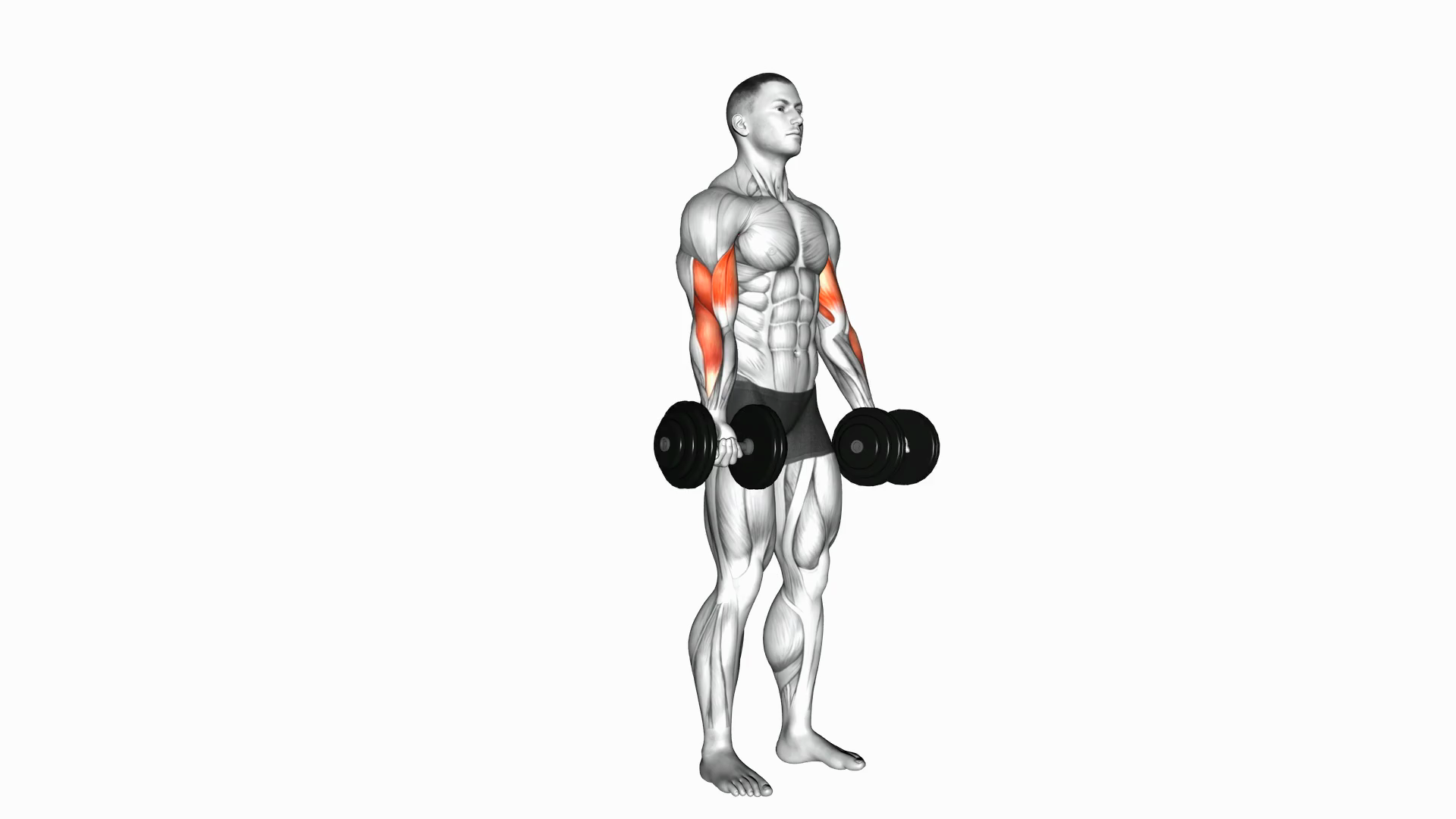The Ultimate Guide to the Dumbbell Biceps Curl

Unleash your ultimate upper body strength with the classic dumbbell biceps curl! This muscle-building move not only targets your biceps but also works on your forearms, paving the way for improved core strength, enhanced mobility, and stellar performance in any physical activity.
In this comprehensive guide, you'll learn:
- What the Dumbbell Biceps Curl is
- The anatomy and muscles worked during the exercise
- Benefits of the Dumbbell Biceps Curl
- Step-by-step guide on how to perform the exercise
- Pro tips for better results
- Common mistakes to avoid
- Programming strategies for different fitness goals
- Variations and progressions of the exercise
- When to incorporate Dumbbell Biceps Curl into your workout routine
🔍 What Is the Dumbbell Biceps Curl?
The Dumbbell Biceps Curl is a weightlifting exercise that focuses on building strength and size in your biceps and forearms. It's an excellent exercise for athletes, bodybuilders, and anyone looking to improve their upper body strength and aesthetics.
🧠 Anatomy and Muscles Worked
- Primary Movers
- Biceps Brachii: The two-headed muscle that makes up your biceps, responsible for elbow flexion and forearm rotation.
- Secondary/Supporting Muscles
- Brachialis: Located under the biceps brachii, it helps with elbow flexion.
- Brachioradialis: A muscle of the forearm that assists in flexing the elbow.
✅ Benefits of the Dumbbell Biceps Curl
- Strength and Size: Regularly performing this exercise can increase the size and strength of your biceps and forearms.
- Improved Grip Strength: It can significantly enhance your grip strength, which is crucial for various sports and daily activities.
- Better Muscle Balance: It promotes muscle symmetry and balance, reducing the risk of injury.
- Versatility: You can perform it with various equipment and variations, making it a versatile addition to any workout routine.
🛠️ How to Perform the Dumbbell Biceps Curl (Step-by-Step)
Setup:
- Setup: Stand up straight with a dumbbell in each hand, arms fully extended, and palms facing forward.
- Execution: Slowly curl the weights while keeping your upper arms stationary. Continue the movement until your biceps are fully contracted and the dumbbells are at shoulder level. Lower the dumbbells back down to the starting position.
- Reps: Aim for 8-12 reps for 3-4 sets.
🧠 Pro Tips for Better Results
- Maintain Good Posture: Keep your back straight and your core engaged throughout the movement.
- Avoid Momentum: Don't use your back or shoulders to lift the weights; let your biceps do the work.
- Control the Weights: Lower the weights slowly and in a controlled manner to maximize muscle tension.
- Breathing: Breathe out as you curl the weights and breathe in as you lower them.
❌ Common Mistakes to Avoid
| Mistake | Why It’s Bad |
|---|---|
| Swinging the Weights | It reduces the tension on the biceps and can lead to potential injuries |
| Not Fully Extending the Arms | It limits the range of motion and reduces the effectiveness of the exercise |
| Using Too Heavy Weights | It can lead to poor form and potential injuries |
🧬 Programming Strategies
- Core Strength: 3 sets of 8-10 reps with heavier weights
- Hypertrophy: 3-4 sets of 12-15 reps with moderate weights
- Rehab & Stability: 2-3 sets of 15-20 reps with lighter weights
🔁 Variations and Progressions
| Variation | Purpose |
|---|---|
| Hammer Curl | Targets the brachialis and brachioradialis more directly |
| Incline Dumbbell Curl | Increases the range of motion and intensity |
🧱 When to Use the Dumbbell Biceps Curl
- During your upper body workouts
- As a part of your arm-focused training days
- To improve strength for sports that require strong arms and grip
- When you want to focus on building bigger biceps
Remember, the Dumbbell Biceps Curl is more than just an aesthetic exercise; it's a testament to your upper body strength and resilience. Stay consistent, keep perfecting your form, and your biceps will thank you with the strength and shape you desire. So grab those weights, and let's start curling!